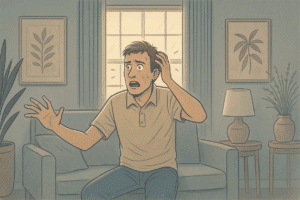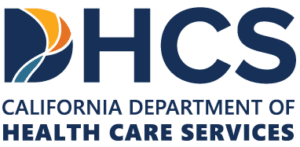Key Takeaways
- Schizoaffective disorder involves a combination of schizophrenia symptoms and mood disorder elements, making it a complex condition that requires a nuanced treatment approach.
- Effective management of schizoaffective disorder requires personalized treatment plans that consider the unique mix of psychotic and mood symptoms present in each individual.
- Recovery from schizoaffective disorder involves more than symptom management; it includes medical treatment, therapy, lifestyle adjustments, and robust social support to improve overall life quality.
- Early intervention and consistent management using medications, psychotherapy, and lifestyle changes are crucial for improving outcomes and achieving recovery.
- A Mission for Michael offers specialized treatment for schizoaffective disorder by combining advanced psychiatric care, medication management, and a range of psychotherapeutic modalities to provide a tailored and supportive environment for recovery.
Recovery from Schizoaffective Disorder
Schizoaffective disorder combines schizophrenia symptoms—like hallucinations and delusions—with mood disorder symptoms, such as depression or bipolar disorder. This complex blend makes management challenging but allows for varied and effective treatment options that can lead to recovery.
Recovery requires a profound understanding of the disorder, alongside patience and targeted support to regain life control and find balance. The recovery path is long but achievable with personalized treatment plans.
Understanding schizoaffective disorder is crucial. It features a mix of psychotic and mood symptoms, varying significantly between individuals, which dictates the need for customized treatment approaches.
| A Mission For Michael: Expert Mental Health Care Founded in 2010, A Mission For Michael (AMFM) offers specialized mental health care across Southern California, Washington, and Virginia. Our accredited facilities provide residential and outpatient programs, utilizing evidence-based therapies such as CBT, DBT, and EMDR. Our dedicated team of licensed professionals ensures every client receives the best care possible, supported by accreditations from The Joint Commission and the California Department of Health Care Services. We are committed to safety and personalized treatment plans. Start your recovery journey with AMFM today! |
The Concept of Full Recovery
Recovery doesn’t necessarily mean a complete absence of symptoms. Instead, it refers to achieving a state where symptoms are manageable, and individuals can lead fulfilling lives.
Full recovery involves several components, including medical treatment, therapy, lifestyle changes, and social support. It’s about finding a sustainable way to live with the disorder while minimizing its impact on daily life.
The Importance of Hope and Treatment
Treatment is the cornerstone of recovery. It typically involves a combination of medication and therapy. Medications help manage the symptoms, while therapy provides strategies for coping with challenges and improving quality of life.
Hope fuels the determination to keep going, even when things get tough. Believing in the possibility of recovery can motivate individuals to adhere to their treatment plans and seek support when needed.
Factors Influencing Recovery
Genetics and Biological Influences
If a family member has a history of schizophrenia or mood disorders, the risk may be higher. However, genetics is just one piece of the puzzle.
Biological factors, such as brain chemistry and structure, also contribute to the disorder. Imbalances in neurotransmitters, like dopamine and serotonin, can affect mood and perception, leading to symptoms of schizoaffective disorder.
Treatment Options for Schizoaffective Disorder

Medication plays a critical role in managing symptoms of schizoaffective disorder effectively.
Treatment for schizoaffective disorder aims to stabilize mood, reduce psychotic symptoms, and improve overall functioning. This often requires a combination of medication, therapy, and lifestyle adjustments.
Early and consistent treatment is essential. By addressing symptoms promptly, individuals can experience significant improvements in their quality of life. Treatment plans should be personalized, taking into account the specific symptoms and needs of each individual.
Medication Management
Medications help manage symptoms and prevent relapses. Common medications include antipsychotics, mood stabilizers, and antidepressants. Each medication targets different symptoms, so finding the right combination can take time.
Antipsychotics help reduce hallucinations and delusions, while mood stabilizers, like lithium or valproate, help control manic or depressive episodes. Antidepressants may be used if depressive symptoms are prominent.
Role of Psychotherapy
Psychotherapy, or talk therapy, provides a space for individuals to examine their thoughts and feelings, develop coping strategies, and enhance interpersonal relationships. Cognitive behavioral therapy (CBT) is particularly effective in helping individuals change negative thought patterns and behaviors.
Besides CBT, other therapeutic approaches, such as family therapy and group therapy, can offer additional support. Family therapy involves loved ones in the treatment process, fostering understanding and improving communication. Group therapy provides a sense of community and shared experience, which can be incredibly comforting.
Therapy also focuses on building skills for daily living, such as managing stress, improving social interactions, and setting realistic goals.
Integrative Approaches and Lifestyle Changes
Integrative approaches and lifestyle changes can include exercise, nutrition, mindfulness practices, and stress management techniques. Physical activity, for instance, has been shown to improve mood and reduce anxiety, which can be beneficial for individuals with schizoaffective disorder.
Mindfulness and meditation can help individuals stay grounded and manage stress. Practicing mindfulness involves paying attention to the present moment without judgment, which can reduce anxiety and improve emotional regulation.
Long-term Outlook and Quality of Life
Managing Expectations of Recovery
It’s important to set realistic goals and celebrate small victories. Recovery is not a one-size-fits-all process; it varies from person to person. Some may experience periods of stability with occasional relapses, while others may achieve long-term remission.
Setting achievable goals helps maintain motivation and focus. It’s also important to acknowledge that setbacks are a normal part of the recovery journey. They provide opportunities to learn and adapt strategies for better management of symptoms.
Building Resilience and Coping Strategies
Building resilience involves cultivating a mindset that fosters growth and learning. Coping strategies, such as problem-solving skills, stress management techniques, and social support networks, are essential components of resilience.
Effective coping strategies can include identifying triggers, practicing relaxation techniques, and seeking support from trusted friends or family members. Building a strong support network can provide encouragement and practical assistance during difficult times.
Achieving Personal Goals and Fulfillment
Achieving personal goals and finding fulfillment involves exploring interests, pursuing hobbies, and setting career or educational goals. Engaging in meaningful activities can enhance self-esteem and provide a sense of purpose.
It’s important to focus on strengths and abilities rather than limitations. By setting realistic goals and working towards them, individuals with schizoaffective disorder can experience a sense of accomplishment and satisfaction.
Why Choose A Mission for Michael to Treat Schizoaffective Disorder?

Individual therapy sessions at A Mission for Michael provide tailored support for schizoaffective disorder.
At A Mission for Michael, our approach to treating schizoaffective disorder integrates advanced psychiatric care, targeted medication management, and a wide spectrum of psychotherapeutic modalities. We emphasize personalized treatment plans that adapt to the unique symptoms and challenges each patient faces, incorporating both traditional and innovative therapies.
Our facilities utilize the latest advancements in mental health care, including CBT, dialectical behavior therapy, and specialized support for mood stabilization. We also offer holistic care options like mindfulness and stress management techniques, so you can be sure you’ll get a comprehensive treatment environment that will help you recover in the long term and improve your overall quality of life.
Frequently Asked Questions
What is Schizoaffective Disorder?
Schizoaffective disorder is a mental health condition that features a mix of schizophrenia symptoms such as hallucinations and delusions, and mood disorder symptoms like depression or mania. This blend of symptoms necessitates a comprehensive and individualized treatment approach.
Can you fully recover from Schizoaffective Disorder?
Full recovery from schizoaffective disorder does not necessarily mean the complete absence of symptoms. Rather, it involves reaching a state where symptoms are well-managed, allowing individuals to lead fulfilling and functional lives.
What are the main components of effective treatment for Schizoaffective Disorder?
Effective treatment typically includes a combination of medication management to stabilize mood and control symptoms, psychotherapy to develop coping strategies, and lifestyle changes to support overall well-being and resilience.
How important is early intervention in the treatment of Schizoaffective Disorder?
Early intervention is crucial as it significantly enhances the treatment outcome. Starting treatment early in the disease progression can help manage symptoms more effectively and improve the long-term outlook for individuals.
Why choose A Mission for Michael for treating Schizoaffective Disorder?
A Mission for Michael specializes in treating schizoaffective disorder by integrating advanced psychiatric care, personalized medication management, and a broad spectrum of psychotherapeutic modalities. We’ve got a range of treatment plans that mix classic therapies with new and exciting approaches. Whatever your needs, we’re here to help you feel your best and move forward with confidence.







